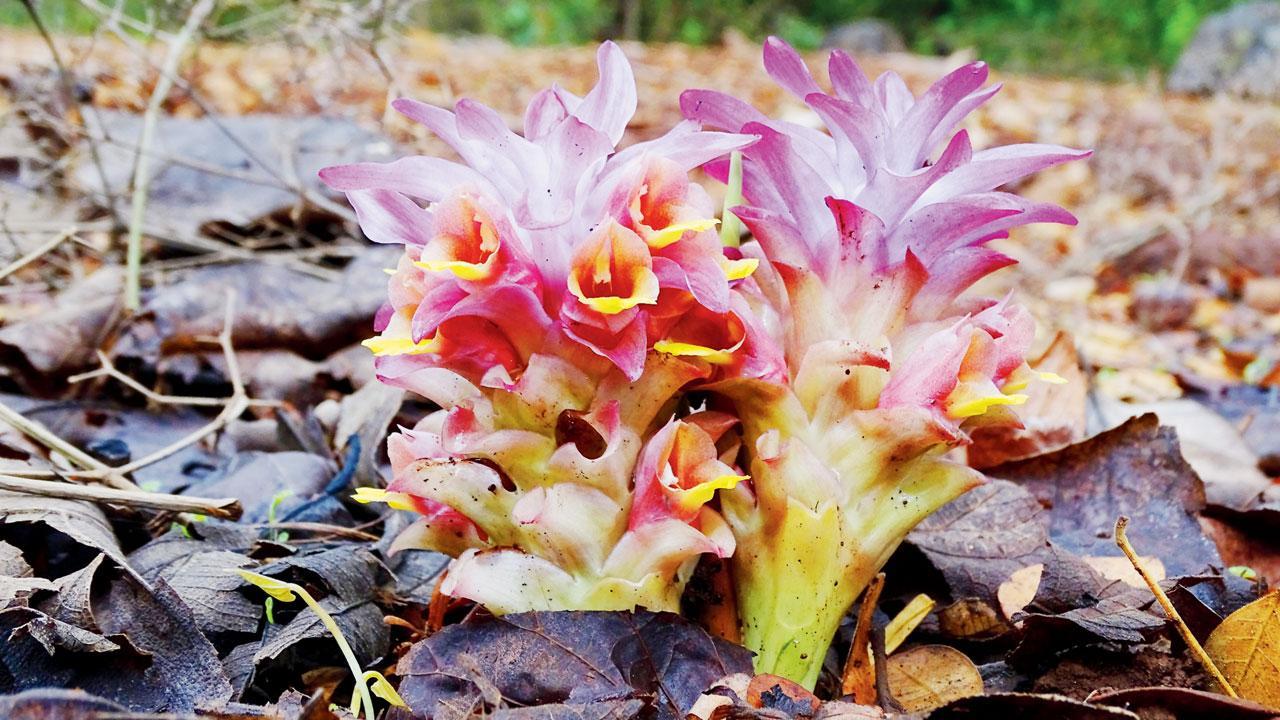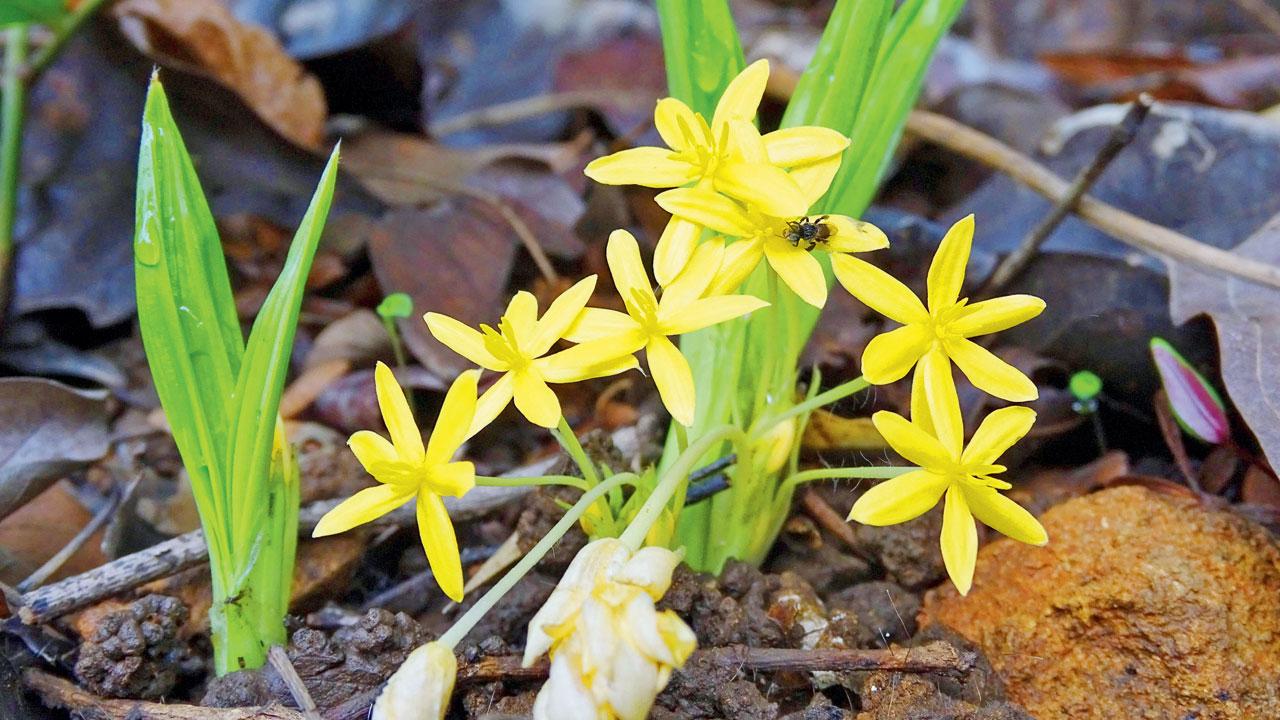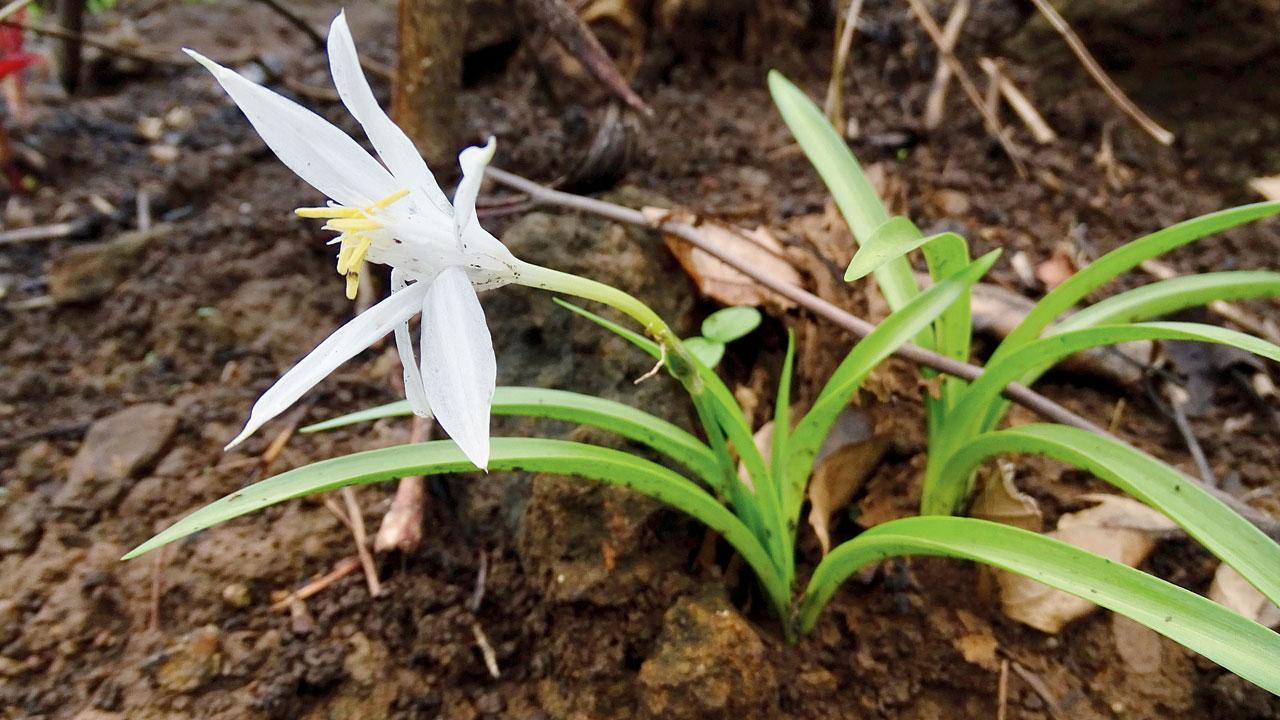Sign up for a wildflower trail by BNHS for an opportunity to spot a few rare species amidst a natural reserve in the city

Hill turmeric
As Mumbai and its outskirts witness light monsoon showers, it might not be such a bad idea to step out and get a front-row seat to witness some flora in the drizzling rain. If you’re a nature enthusiast keen to experience such a spectacle, head to Bombay Natural History Society (BNHS) that is organising a wildflower trail at the their natural reserve in Goregaon this weekend, in a 33-acre pristine forest.
ADVERTISEMENT

Kali musli
Some of the rare flowers found in the reserve include Chlorophytum tuberosum (safed musli), Crinum latifolium (milk and wine lily), Curculigo orchioides (kali musli), Ledebouria revoluta (south Indian squill), Curcuma pseudomontana (hill turmeric), and Pancratium triflorum (forest spider lily). Other plants to look for are dragon stack yam, wild grapes, shield leaf ariopsis, and pink striped trumpet lily. It is advised to not pluck any flowers or leaves from the forest during the trail.

Forest spider lily. Pics courtesy/ Dr Rajdeo Singh
These plants, which are known as ephemerals grow only during favourable periods and are short-lived. Dr Rajdeo Singh, a former botanist at BNHS, shares, “These flowers bloom only after the first monsoon showers, and they wither away in a week or two. Some plants have medicinal properties and are also consumed as vegetables. Sadly, urban dwellers are increasingly moving away from nature. Keeping this in mind, we started this wildflower trail last year as a way to rekindle this bond.”

Dr Rajdeo Singh
Speaking of the medicinal benefits, milk and wine lilies are usually found in the Western Ghats after the first rains. Their bulbs are extremely acrid, and are used for rheumatism, whereas the juice of their leaves can be used for earaches. “Safed musli is a small herb that lies flat on the ground with white flowers. The tubers have been extensively extracted for their aphrodisiac powers, resulting in the plant’s critically endangered status by the International Union for Conservation of Nature (IUCN),” explains Singh. These ephemerals are not only medicinal, but also serve as an important source of nectar and pollen for native insects.
On: June 19; 8 am onwards
Meeting point: CEC, BNHS Reserve, Goregaon.
Call: 9969798447
Cost: Rs 600 (BNHS members), Rs 700 (others)
 Subscribe today by clicking the link and stay updated with the latest news!" Click here!
Subscribe today by clicking the link and stay updated with the latest news!" Click here!







